Jenny Blackadder
Long before being dubbed New Zealand’s queen of the banjo, Jenny Blackadder was recommended to Christchurch rocker Max Merritt for a spot in his band. The only problem was The Meteors didn’t think having a female in the group would fit their image.
Tommy Kahi was the city’s leading guitar teacher in the early 1960s and Blackadder was his top student. But when Max Merritt called on Kahi for the cream of his crop and found out she was a young blonde girl, he invited “second-best” Peter Williams to join The Meteors on guitar instead.
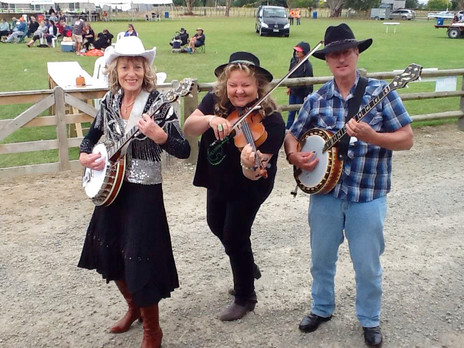
Jenny Blackadder, Marian Burns, and friend, at a New Zealand music festival.
Photo credit:
Jenny Blackadder Collection
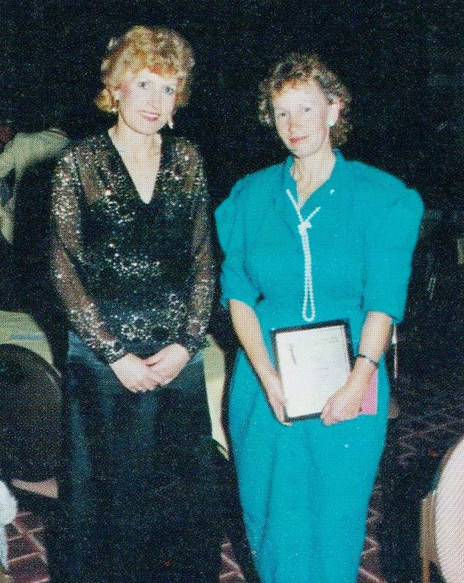
Ginny Peters with New Zealand banjoist Jenny Blackadder.
Photo credit:
Ginny Peters Collection
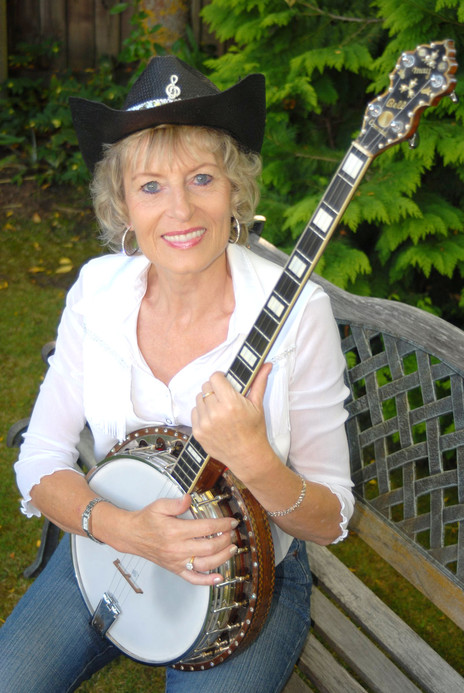
Jenny Blackadder
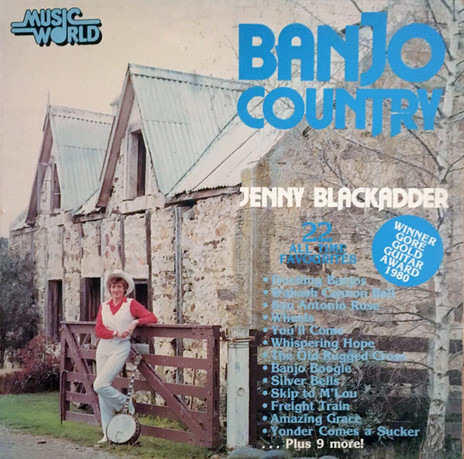
Jenny Blackadder - Banjo Country (Music World, 1983)
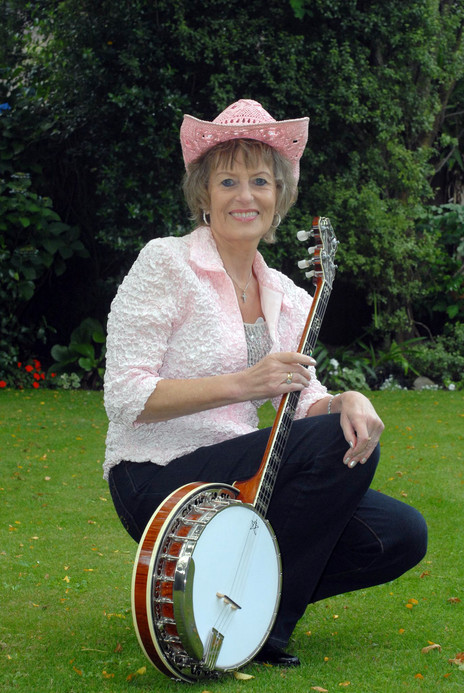
Jenny Blackadder
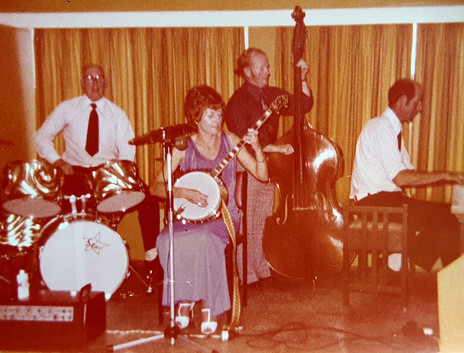
Jenny Blackadder with her jazz/ragtime band in the early 1970s.
Photo credit:
Jenny Blackadder Collection
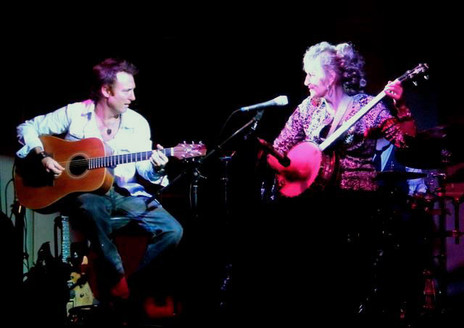
Jenny Blackadder with Michael Stirling, playing a show with her son Geoffrey Hern’s Band Stirling Hern, Wellington, 2014.
Photo credit:
Jenny Blackadder Collection
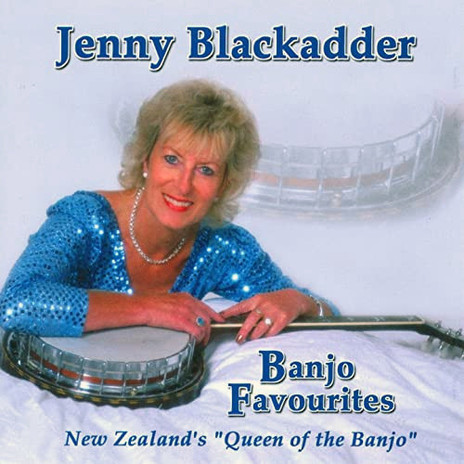
Jenny Blackadder - Banjo Favourites (Rajon, 2002)
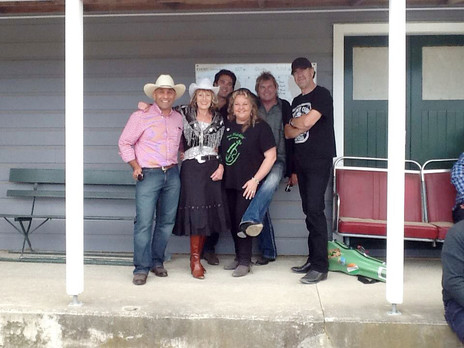
Carterton, Wairarapa, 2016 (front row, from left): Ron Mark, Jenny Blackadder, Marian Burns, Brendan Dugan. At back: Craig Adams and Kevin Greaves.
Photo credit:
Jenny Blackadder Collection
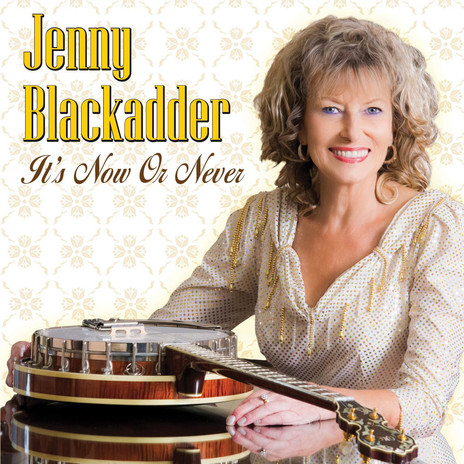
Jenny Blackadder - It's Now or Never (Ode, 2013). Country and popular standards, arranged and produced by Mike McCarthy of Manuka Studios and Bob Heinz of Christchurch.
Photo credit:
Jenny Blackadder Collection
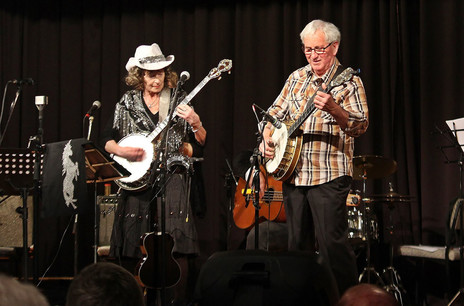
Jenny Blackadder performing with Paul Trenwith (Hamilton County Bluegrass Band), Carterton Hall, 2016.
Photo credit:
Jenny Blackadder Collection
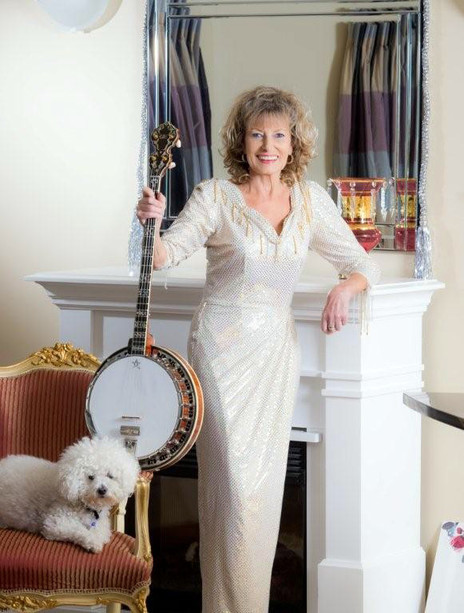
Jenny Blackadder with Molly
Photo credit:
Jenny Blackadder Collection
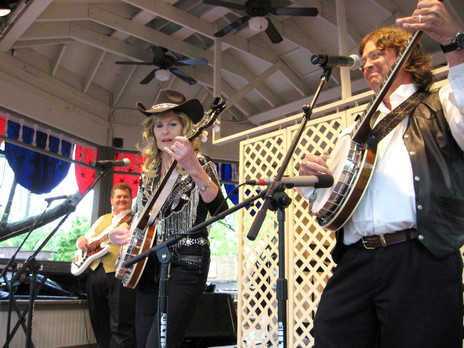
Jenny Blackadder at the Branson, Missouri, music festival, 2007.
Photo credit:
Jenny Blackadder Collection
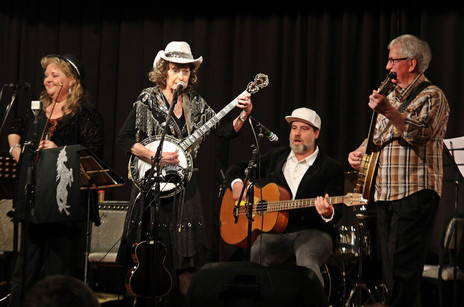
At the Carterton Hall, 2016 (L-R): Marian Burns, Jenny Blackadder, Geoffrey Hern, and Paul Trenwith.
Photo credit:
Jenny Blackadder Collection
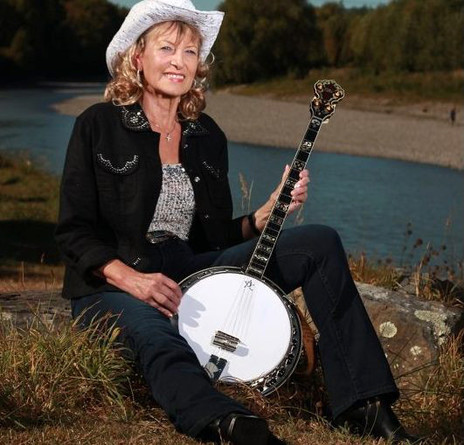
Jenny Blackadder beside the Hutt River, while living in Wellington, 2014.
Photo credit:
Jenny Blackadder Collection
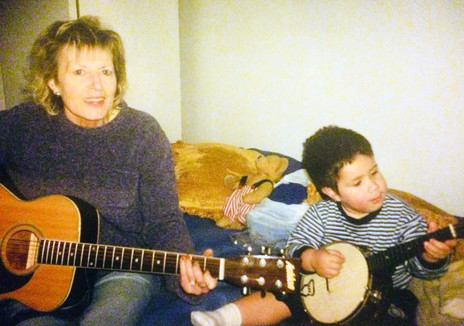
Jenny Blackadder teaching her grandson Teddi Hern to play the banjo, 2002.
Photo credit:
Jenny Blackadder Collection
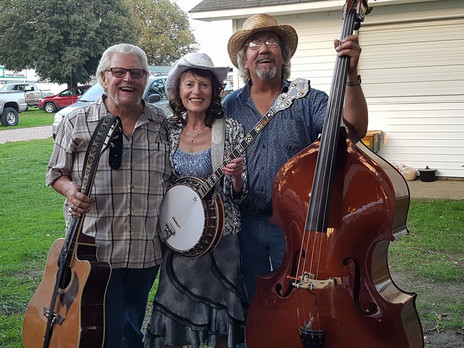
Jenny Blackadder with some US players at the Branson, Missouri, music festival, 2007.
Photo credit:
Jenny Blackadder Collection
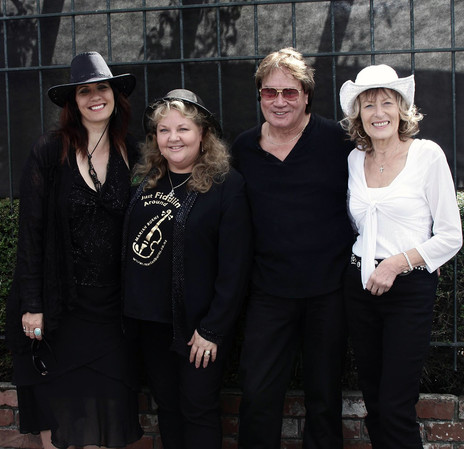
At the Country Music Weekend, Upper Hutt, 2014 (L-R): Ingrid Juffer, Marian Burns, Eddie Low, and Jenny Blackadder.
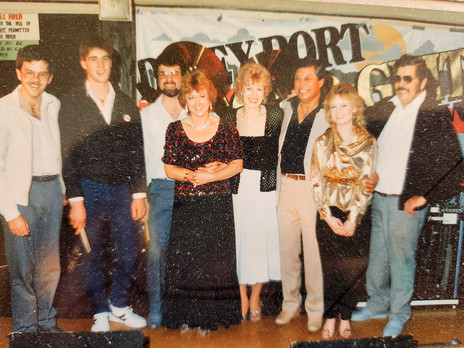
Photo call after the 1984 Gold Guitar Roadshow. From left, guitarist Gary Spaine, Geoffrey Hern (Jenny Blackadder’s son) on bass, Kevin Burke on drums, Patsy Riggir, Jenny Blackadder, Toni Williams, Vicki Galloway (the Gold Guitar winner that year), and Joe Martin, pedal-steel guitarist.
Jenny Blackadder at 2012 Country Music Awards
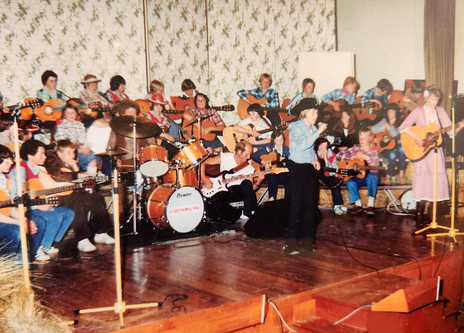
Jenny Blackadder school of music end of year concert with all students and her son Geoffrey Hern singing, Timaru, 1980.
Photo credit:
Jenny Blackadder Collection
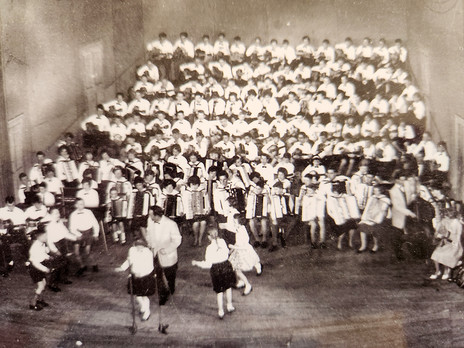
A Tommy Kahi music school concert, Christchurch, early 1960s. Jenny Blackadder is holding her new Yamaha guitar at bottom right, at the age of 16.
Photo credit:
Jenny Blackadder Collection
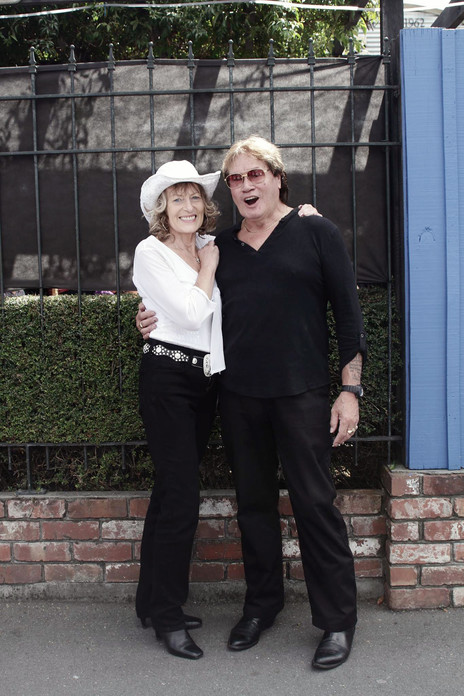
Jenny Blackadder and Eddie Low, at the Country Music Weekend, Upper Hutt, 2014.
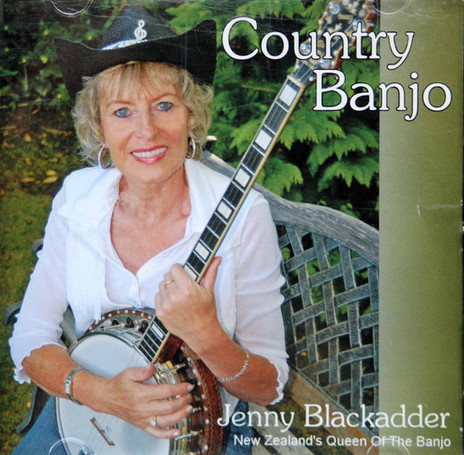
Jenny Blackadder - Country Banjo, produced by Peter Rattray (Rajon, 2007)
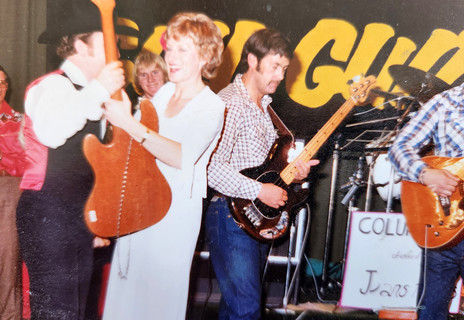
Jenny Blackadder being presented with the "overall winner" award at the Gold Guitars, 1980.
Photo credit:
Jenny Blackadder Collection
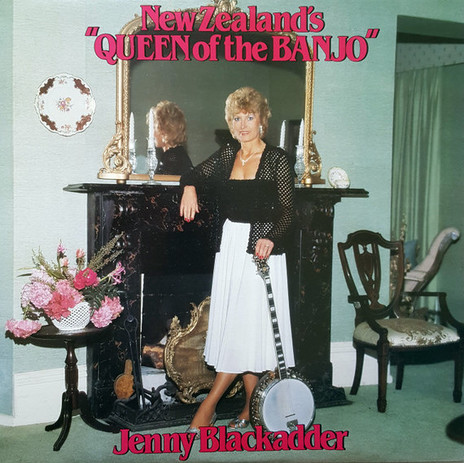
Jenny Blackadder - New Zealand's "Queen of the Banjo" (RCA, 1986)
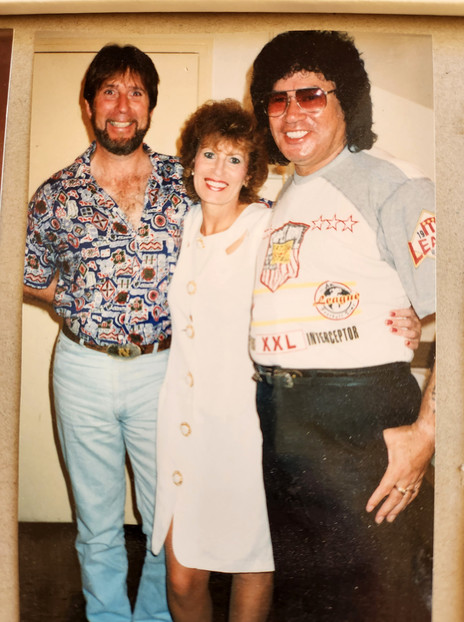
Jenny Blackadder flanked by Noel Parlane (left) and Eddie Low, early 1980s.
Photo credit:
Jenny Blackadder Collection
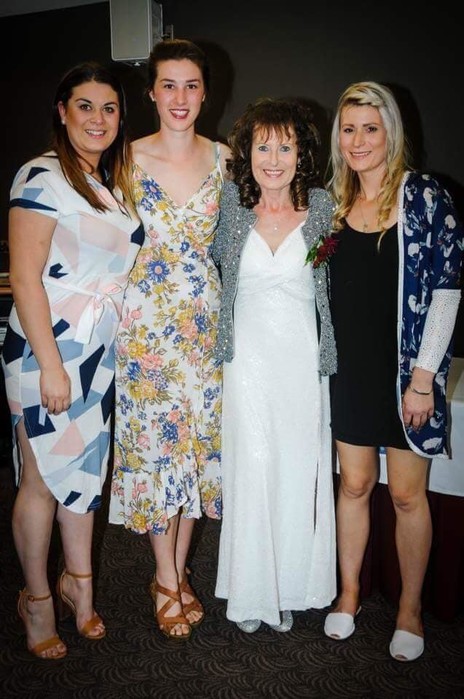
Jenny Blackadder with three granddaughters who play the banjo: Mel Todd, Hannah Randall, Jenny, and Rochelle Lloyd.
Photo credit:
Jenny Blackadder Collection
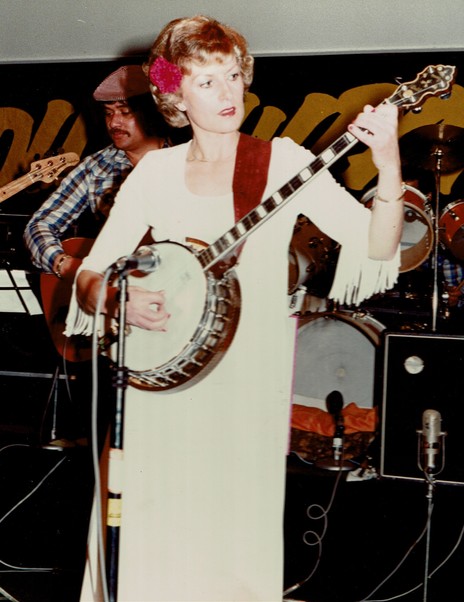
Jenny Blackadder winning the Gold Guitar Award at Gore, 1980.
Photo credit:
Jenny Blackadder Collection
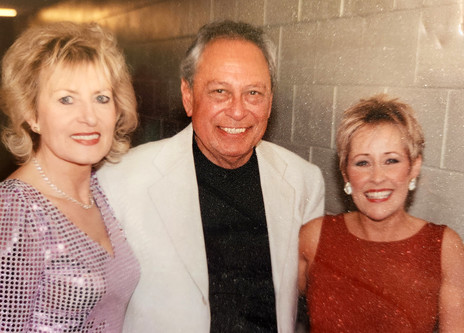
Jenny Blackadder (left) with Toni Williams and Suzanne Prentice.
Photo credit:
Jenny Blackadder Collection
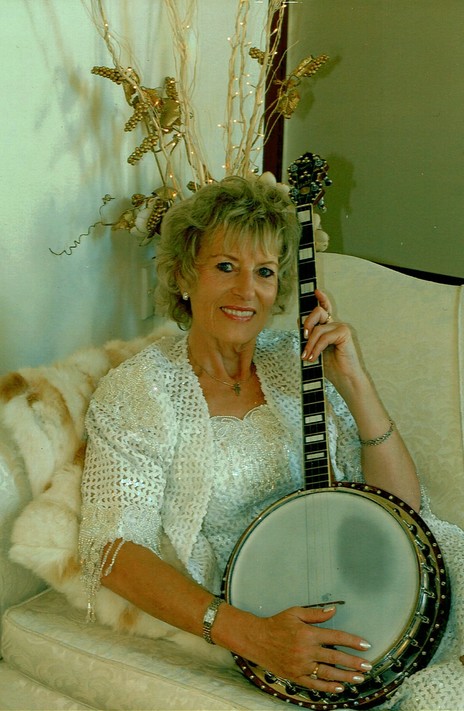
Jenny Blackadder, at home with her banjo.
Photo credit:
Jenny Blackadder Collection
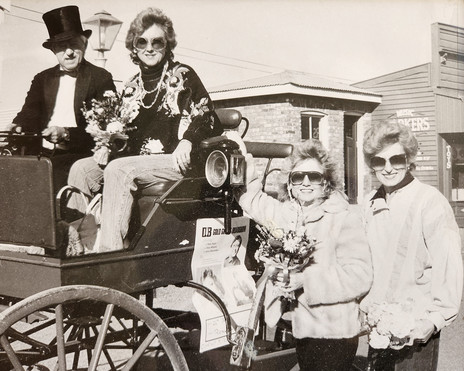
1985 Gold Guitar roadshow publicity shot. To the left of the driver are Patsy Riggir, Vicki Galloway (now Vicki Downes), and Jenny Blackadder.
Photo credit:
Jenny Blackadder Collection
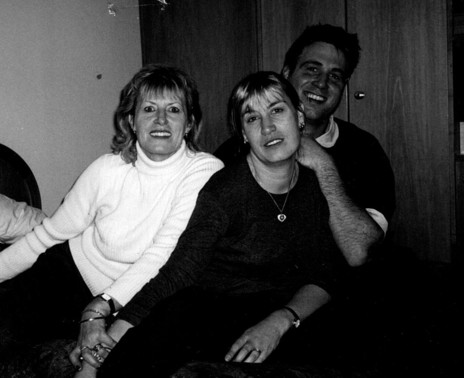
Jenny Blackadder with her two children, Debbie and Geoffrey, 1998.
Photo credit:
Jenny Blackadder Collection
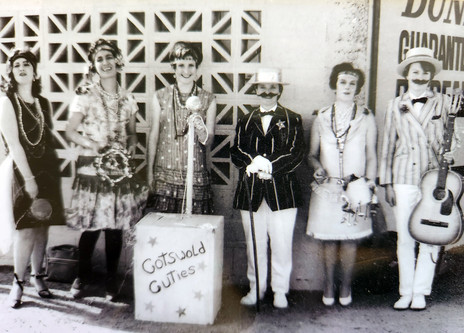
The Cotswold Cuties, late 1960s. A Charleston-style group Jenny Blackadder formed with her neighbour, Helen White (at left). Jenny is on the right with a guitar.
Photo credit:
Jenny Blackadder Collection
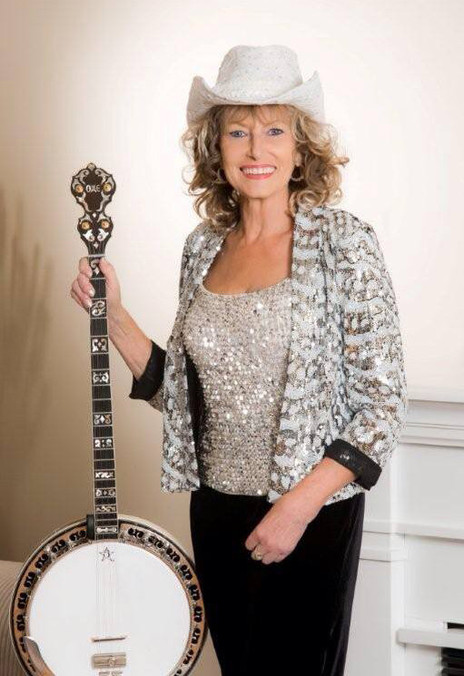
Jenny Blackadder: by the early 1980s Australian newspapers were calling her “New Zealand’s queen of the banjo”.
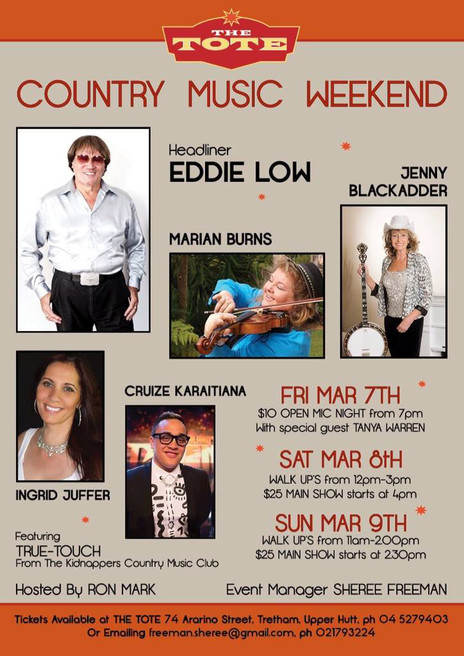
The lineup at the Country Music Weekend, Upper Hutt in 2013 features Jenny Blackadder, Eddie Low and others.
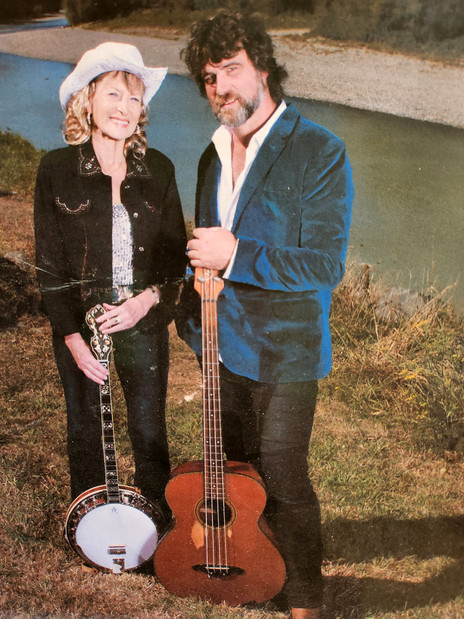
Jenny Blackadder with her son Geoffrey Hern, beside the Hutt River, 2013.
Photo credit:
Jenny Blackadder Collection
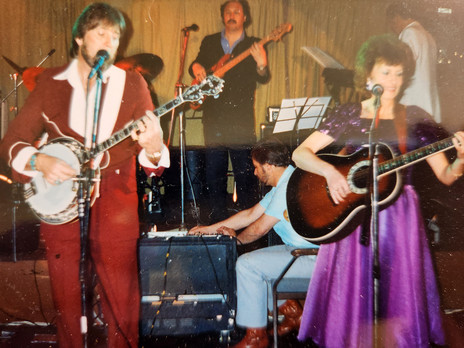
Noel Parlane (red suit, banjo) and Jenny Blackadder, on one of their many tours together. Part of their act was to swap guitar and banjo during show.
Photo credit:
Jenny Blackadder Collection
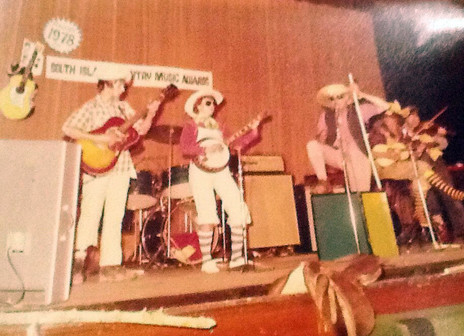
At the 1978 South Island Music Awards, Jenny Blackadder and The Jackson Family from Canterbury, competing as an old-time style band in the group section.
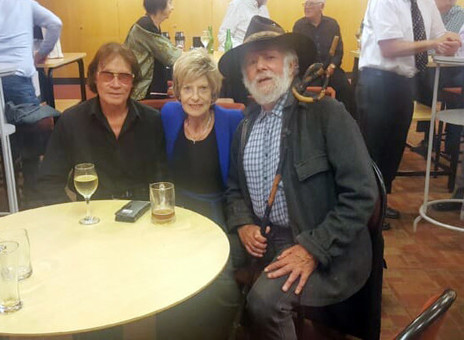
Jenny Blackadder with Eddie Low (left) and John Grenell, January 2020.
Photo credit:
Jenny Blackadder collection
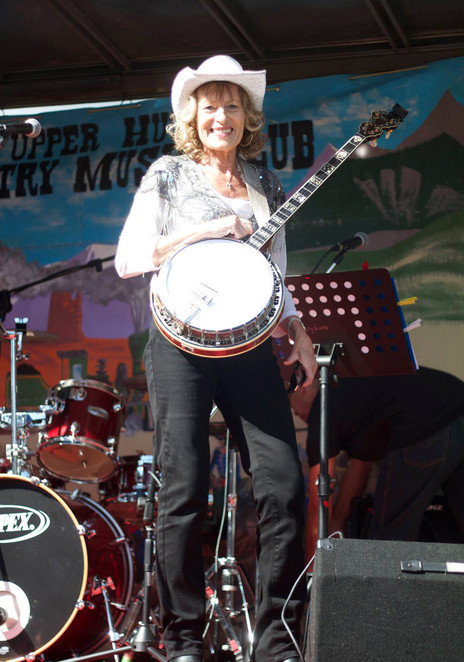
Jenny Blackadder
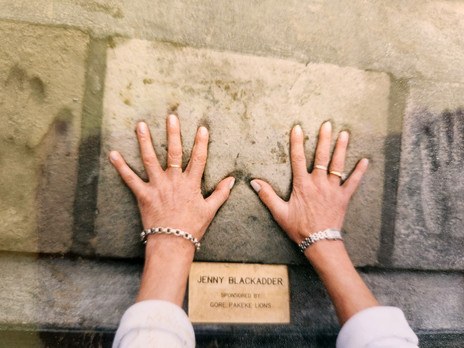
Jenny Blackadder taking part in her Hands of Fame ceremony, Gore.
Photo credit:
Jenny Blackadder Collection
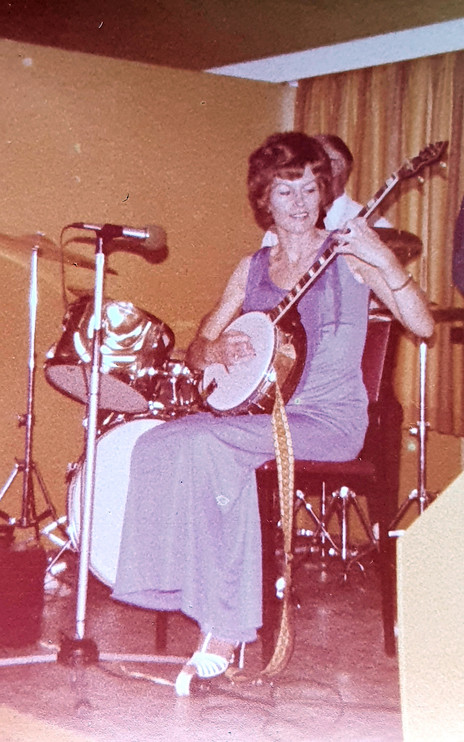
Jenny Blackadder: early days on the banjo
Photo credit:
Jenny Blackadder Collection
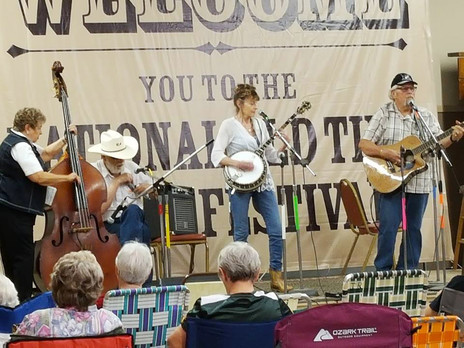
Jenny Blackadder performing at the National Old-Time Music Festival in the US.
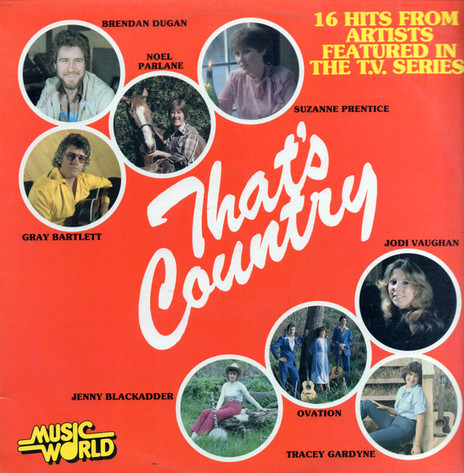
That's Country - a various artists compilation (Music World, 1981). Jenny Blackadder performs a medley of Jimmy Crack Corn, Skip To M'Lou, Deep In The Heart Of Texas, and You'll Come.
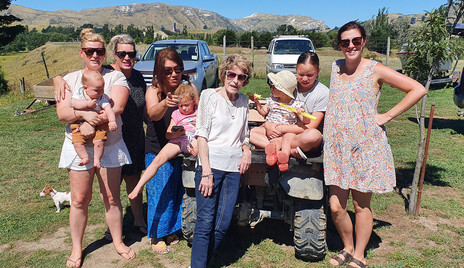
Jenny Blackadder with her daughter Debbie Todd, and some granddaughters, 2020.
Photo credit:
Jenny Blackadder Collection
Discography
